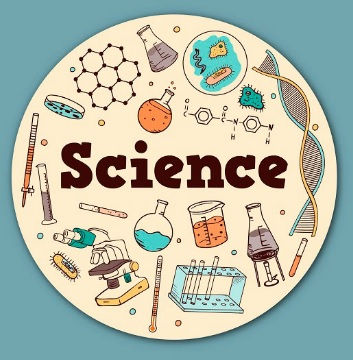
Meaningful Learning
Science
Science lets you discover how and why things happen in the world.

Why learn science?
-
Understand nature and the role you play in nature
-
Understand the role science plays in society
-
Learn about biology, chemistry, physics, and technology
-
Investigate and test scientific ideas and explanations
- Develop skills to plan and conduct investigations, gather information, and evaluate findings
- Develop confidence, knowledge, and skills to find answers to questions
- Find solutions to problems
-
Appreciate the contributions and achievements of scientists and that scientific knowledge has been developed over time by scientists from around the world
-
Learn that the scientific understanding is constantly changing due to continuing research and new technology
Ways to learn science in everyday life:
Ask questions and search for answers
Do experiments and test things
Practice science skills like observing, reasoning, and predicting
Keep a science research notebook to write about what you learn and discover
Find out what is known about a science topic online or in books
Questions to inspire scientific curiosity:
-
What do I think and why?
-
How does it work?
-
What is the cause?
-
What would happen if…?
-
How might I test it to see if it’s true?
How science is useful:
Science is important to you because it influences many parts of your life like technology, energy, food, health, medicine, transportation, and activities. Science can be used to improve your life. Science helps you develop character as you balance between openness to new concepts and being a skeptic. With openness you are encouraged to explore and discover. With skepticism you are encouraged to ask questions and search for evidence. Science challenges people and lifts up the human spirit to search for truth, accomplish feats, and keep moving forward.
Applicable science topics worth knowing about:
Chemistry helps you understand what substances are made of and how they interact. Chemistry is used to make medicine and electronics, to grow crops for food, and to cook.
Some important chemistry topics:
-
acids and bases
-
atoms
-
chemical reactions
-
states of matter (solids, liquids, and gases)
-
mixtures
-
solutions
Biology helps you understand living things. Biology is used to take care of health and for organisms to function and survive.
Some important biology topics:
-
animals
-
plants
-
microorganisms
-
the human body
-
cells
-
evolution
-
disease and infections
-
genes
Physics helps you understand matter. Physics is used in technology and medicine.
Some important physics topics:
-
electricity
-
work
-
energy
-
motion
-
force and gravity
-
waves and sound
-
temperature
-
pressure
-
light
Environmental Science helps us understand our surroundings including air, water, soil, plants, and animals that make it up. Environmental science is used in growing crops and taking care of the environment.
Some important environmental science topics:
-
water cycle
-
food chains
-
ecosystems
-
pollution
-
climate and weather
-
renewable energy
-
recycling